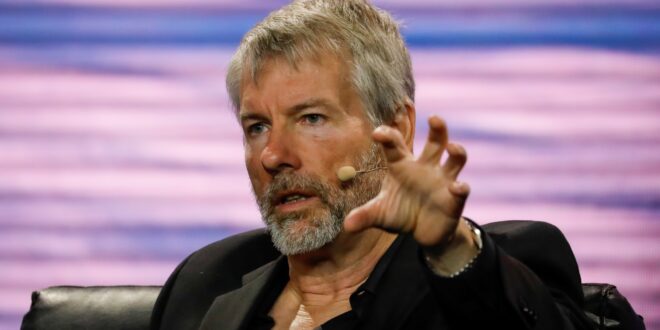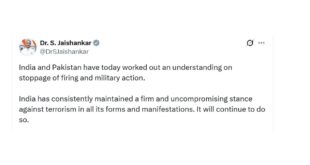In a move that could reshape cryptocurrency policy in the United States, former President Donald Trump has unveiled a bold proposal to create a strategic Bitcoin reserve as part of his economic platform. This unconventional plan has gained the endorsement of MicroStrategy’s Executive Chairman and prominent Bitcoin advocate, Michael Saylor. Known for his outspoken support of Bitcoin, Saylor’s backing adds weight to the proposal, sparking widespread debate about its potential impact on the global financial system.
The Proposal: A Strategic Bitcoin Reserve Trump’s policy proposal suggests that the U.S. government should create a national Bitcoin reserve, similar to its gold reserves, to hedge against inflation, strengthen the dollar’s position, and diversify the nation’s strategic assets. This reserve, according to Trump, would be acquired through market purchases or partnerships with private mining firms. The plan underscores Bitcoin’s growing recognition as a store of value and its potential role in national and economic security.
While the proposal is unconventional, it aligns with Trump’s history of challenging traditional financial norms. Advocates argue that a strategic Bitcoin reserve could solidify the U.S. as a global leader in the cryptocurrency space while providing a hedge against global economic uncertainties.
Michael Saylor’s Endorsement: Michael Saylor’s support for the plan has amplified its significance. As one of the most prominent Bitcoin proponents, Saylor has long championed the idea of Bitcoin as a superior asset to traditional stores of value like gold. Under his leadership, MicroStrategy has amassed a Bitcoin treasury worth billions, setting an example for institutional adoption.
In a public statement, Saylor praised Trump’s proposal as a visionary step toward securing America’s financial future. He highlighted Bitcoin’s unique properties—such as its scarcity, decentralization, and immunity to government manipulation—as key reasons why it belongs in the U.S. strategic reserves.
“Bitcoin is the hardest money ever created,” Saylor remarked. “A strategic Bitcoin reserve would protect the U.S. economy against inflationary pressures and currency debasement while positioning the country as a global leader in digital innovation.”
Implications for the Crypto Market: If implemented, a strategic Bitcoin reserve could have far-reaching implications for the cryptocurrency market and the broader economy.
- Increased Institutional Legitimacy: Government adoption of Bitcoin would provide the cryptocurrency with unparalleled legitimacy, encouraging broader institutional and retail adoption. Such a move could lead to increased demand, potentially driving up Bitcoin’s price.
- Global Competition: Other nations, particularly those like El Salvador that have already embraced Bitcoin, may view the U.S. proposal as a competitive threat. This could trigger a race among global superpowers to incorporate Bitcoin into their economic strategies.
- Market Volatility: The announcement alone could fuel significant volatility in Bitcoin prices. While some investors might welcome the move, others could view it as a signal of heightened regulatory scrutiny, particularly if the government enters the market as a major buyer.
Challenges and Criticisms: Despite its potential benefits, the proposal has also faced significant criticism:
- Volatility Concerns: Critics argue that Bitcoin’s price volatility makes it an unsuitable asset for national reserves. Unlike gold, Bitcoin’s value can fluctuate wildly, which could expose the U.S. to financial risk.
- Regulatory and Political Hurdles: Establishing a strategic Bitcoin reserve would require bipartisan support and extensive regulatory groundwork. Given the polarized nature of U.S. politics, this could be a significant obstacle.
- Impact on Bitcoin’s Decentralization: Some in the crypto community fear that government involvement in Bitcoin ownership could undermine the asset’s decentralized ethos, potentially setting a precedent for state control over digital currencies.
What This Means for Bitcoin’s Future: The proposal has reignited discussions about Bitcoin’s role in the global financial system. As more governments explore the potential of blockchain technology and digital currencies, the concept of national Bitcoin reserves may gain traction.
Michael Saylor’s endorsement could play a pivotal role in shaping public and institutional perception of the proposal. As a respected figure in the crypto space, his support lends credibility to the idea, potentially swaying skeptics and attracting further attention from policymakers and investors.
Trump’s proposal for a strategic Bitcoin reserve, bolstered by Michael Saylor’s endorsement, marks a bold new chapter in the intersection of cryptocurrency and politics. While its implementation faces numerous hurdles, the very discussion of such a plan signals Bitcoin’s growing importance in the global economic landscape.
As debates continue, one thing is clear: Bitcoin is no longer just a speculative asset—it’s becoming a central topic in national and international financial strategy. Whether this proposal becomes reality or remains a talking point, it underscores the increasing influence of digital assets on policy and economic planning.
 Business Sandesh Indian Newspaper | Articles | Opinion Pieces | Research Studies | Findings & News | Sandesh News
Business Sandesh Indian Newspaper | Articles | Opinion Pieces | Research Studies | Findings & News | Sandesh News



